Contact center of the Ukrainian Judiciary 044 207-35-46
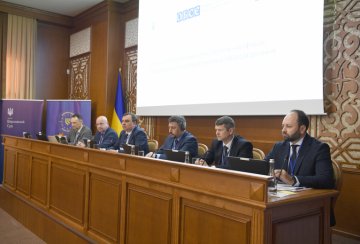
National security is a key element in enabling a country to develop and ensure respect for the fundamental principles of the rule of law.
After the outbreak of full-scale russian aggression, the Verkhovna Rada of Ukraine introduced a number of amendments to the Criminal Code of Ukraine, improving the provisions of the Special Part of the Code, which provide for criminal liability for crimes against the foundations of national security of Ukraine.
Since the new legislative provisions were introduced, there have been queries regarding their application and correlation with other articles of the Criminal Code of Ukraine. However, professional discussions between representatives of the judiciary, investigative bodies and academics are yielding results and contributing to the resolution of relevant legal issues.
This was stated by Stanislav Kravchenko, President of the Supreme Court, at the conference "Crimes against the foundations of national security: qualification and liability in the context of a full-scale invasion".
The President of the Supreme Court thanked the OSCE and the Council of Europe for their assistance in organising this event, noting that it was particularly important for Ukraine to feel the support of reliable international partners in these extremely difficult times.
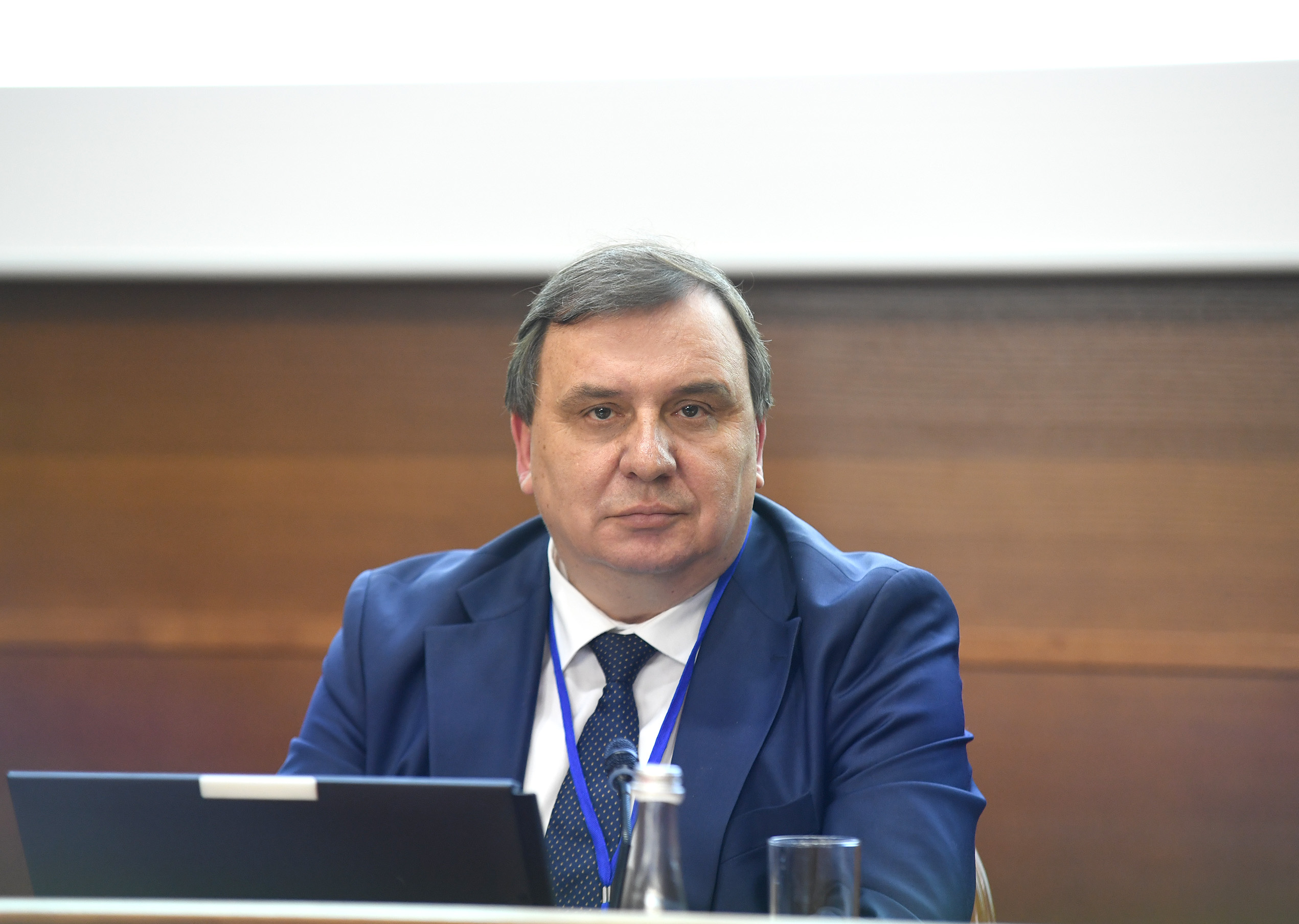
"The national courts are already actively developing the practice of considering criminal proceedings for crimes against the foundations of Ukraine's national security. The views expressed during today's discussion will help us to improve the efficiency of the judiciary and to ensure fair and objective consideration of this category of cases," said the SC President.
The moderator of the event, First Deputy Chief of Staff of the Supreme Court Rasim Babanly, noted that today's conference opens a discussion on problematic aspects of judicial practice in criminal proceedings for crimes against the foundations of national security of Ukraine, arising both at the stage of pre-trial investigation and at the trial. The topic of crimes against the foundations of national security became relevant in 2014, and became even more important in 2022, after russia's full-scale invasion of Ukraine. In this context, a number of questions have arisen as to the application of the law in these proceedings. According to Rasim Babanly, the gathering of stakeholders at this conference - judges of all instances, lawyers, law enforcement officials, academics and international experts - is important for finding common solutions to problematic issues.
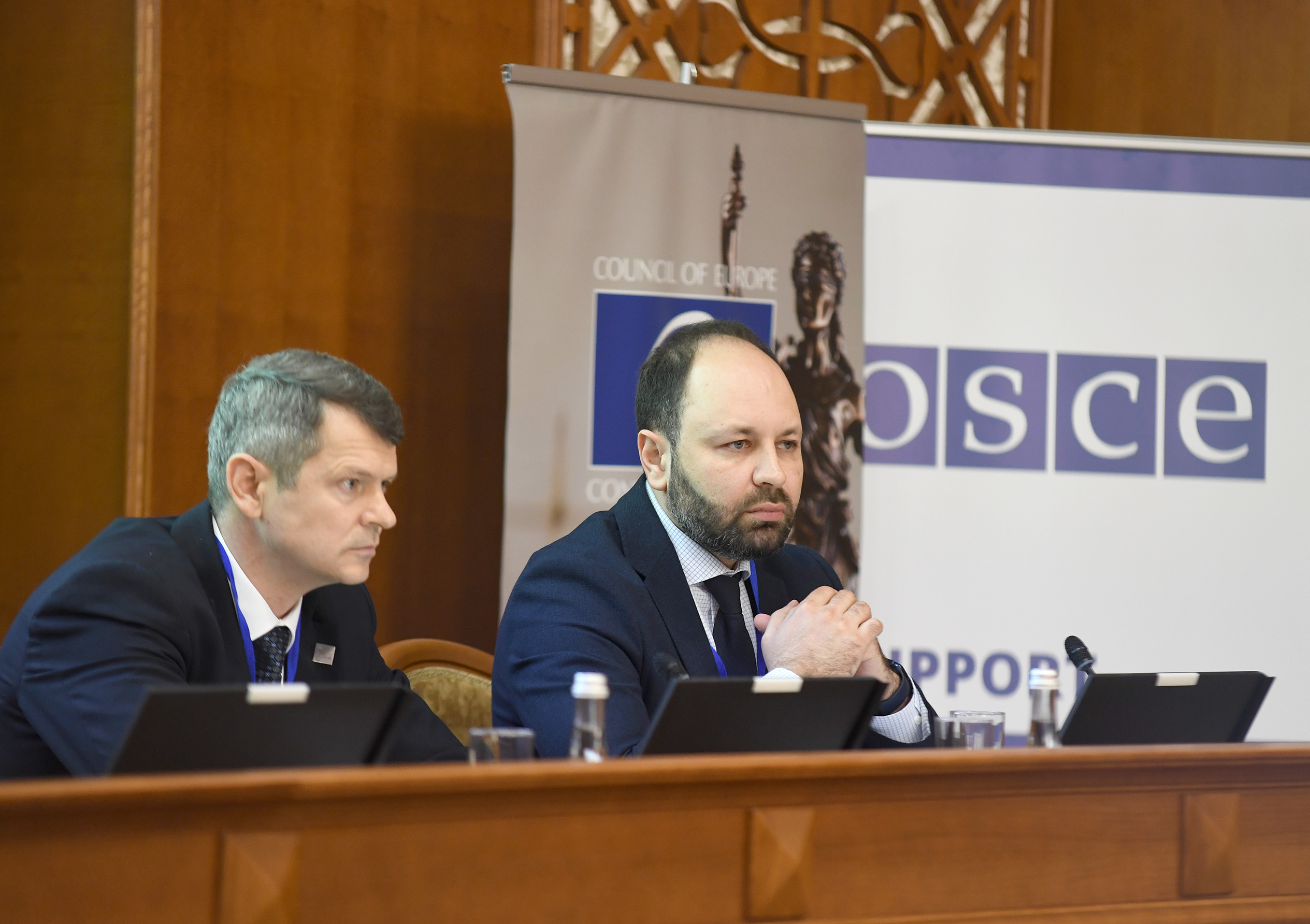
In his welcoming remarks, Ambassador Marcel Peško, Special Representative of the OSCE Chairmanship and Project Co-ordinator in Ukraine, noted that russia's unprovoked military aggression against Ukraine had created an unprecedented number of new challenges for the Ukrainian judiciary. These include crimes against the foundations of national security as the most dangerous violations of social relations aimed at preserving the independence and general constitutional order of the state.
Today, national courts are faced with the additional burden of dealing with new categories of cases, and the courts have a particularly responsible role to play. After all, the Ukrainian society is waiting for the verdicts in such cases. These decisions not only build the credibility of Ukrainian courts, but also have a global impact as they are scrutinised by international lawyers, academics and experts.

Marcel Peško emphasised that Ukrainian judges are fully aware of this fact and strive to provide sound reasoning and high quality court decisions in this category of cases. According to him, the OSCE supports today's dialogue platform and always pays great attention to supporting the effective functioning of democratic institutions, and in times of war, an effective judicial system is of paramount importance.
Maciej Janczak, Head of the Council of Europe Office in Ukraine, noted that the Council of Europe has been consistently helping Ukraine to overcome the consequences of russia's aggressive war against Ukraine since February 2022.
"Those involved in international crimes in Ukraine must be brought to justice. At the same time, it is extremely important that general justice is carried out in accordance with the principles of the rule of law and human rights," said Maciej Janczak.
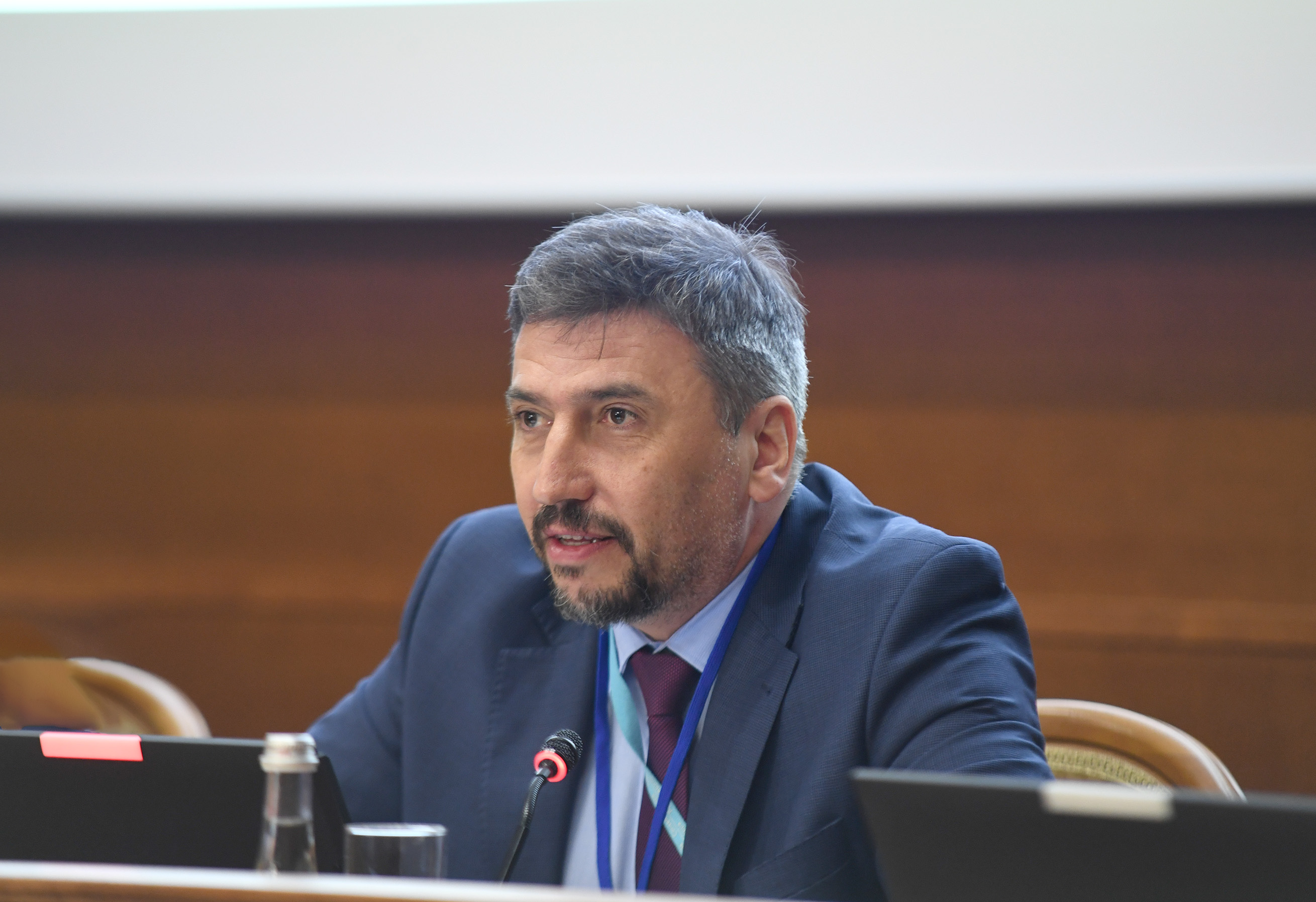
According to him, the concept of collaboration is new to the Ukrainian legal system. The introduction of criminal liability for collaboration in Ukraine involves complex legal issues, including the prosecution of Ukrainian citizens who may have been forced to collaborate with the occupying forces. According to the Head of the Office of the Council of Europe in Ukraine, it is necessary to thoroughly investigate the circumstances and motives in each of these cases in order to prevent possible unjust punishment of persons who are themselves victims.
Maciej Janczak praised the efforts of the Ukrainian authorities to harmonise Ukrainian legislation and its implementation with Council of Europe standards. The consistency of state policy in dealing with the aftermath of war is important for the realisation of civil society's human rights aspirations.
"The Council of Europe stands ready to continue to provide legal advice and expert assistance and to build the capacity of the criminal justice system in Ukraine. We have a common goal - to build an even more effective criminal justice system in Ukraine," assured the Head of the CoE Office in Ukraine.
Oleksandr Marchuk, President of the Criminal Cassation Court of the Supreme Court, stressed that it was no coincidence that crimes against the foundations of Ukraine's national security were included in Chapter I of the Special Part of the Criminal Code of Ukraine. The human need for security is one of the most fundamental, as is the state's need to ensure its national security. The absence of state security will preclude the ability to live, work, and develop freely.
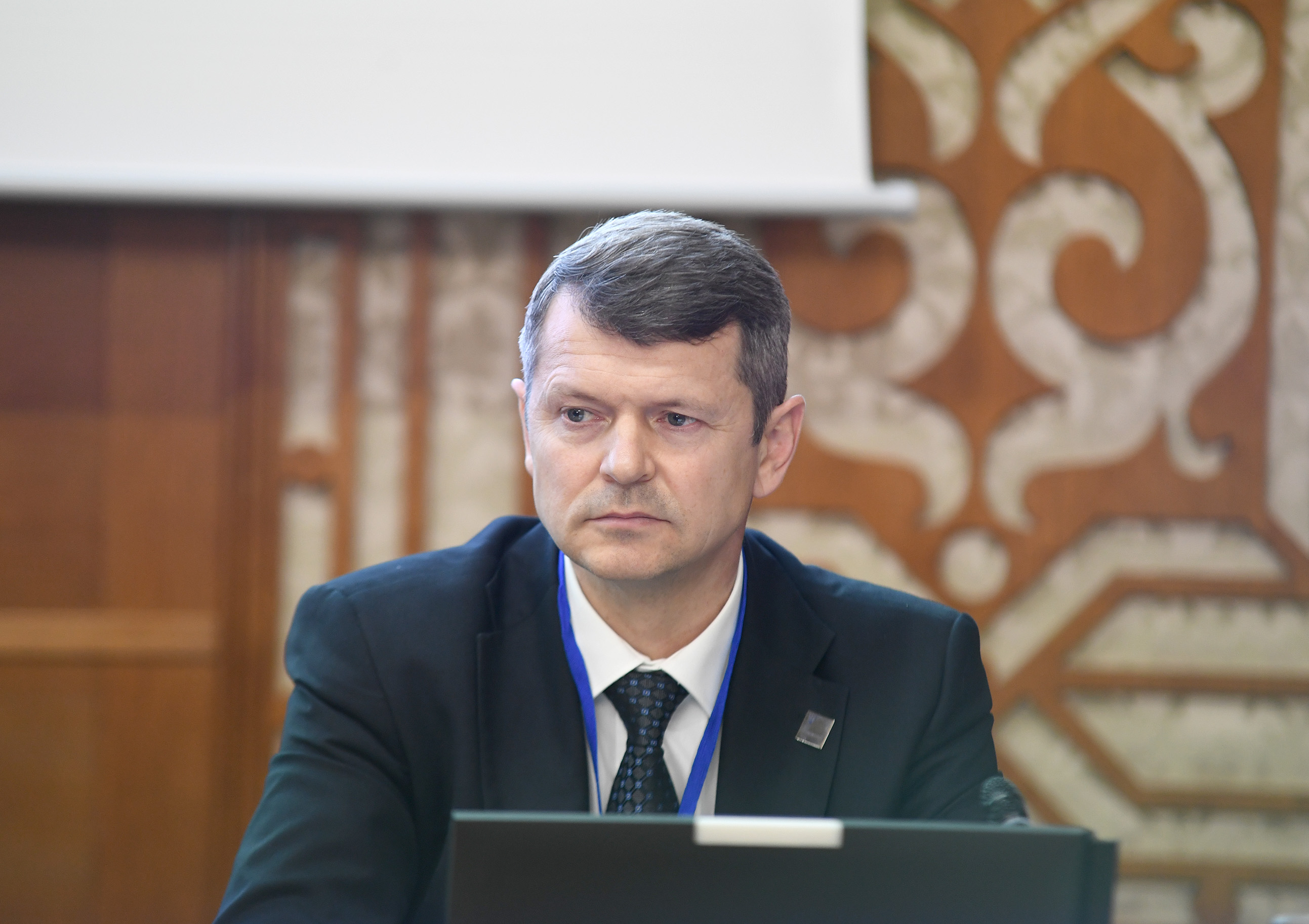
According to the President of the Criminal Cassation Court, national security is not so much about feeling safe as it is about being ready to respond to danger. Rather, it is about the pervasive and constant readiness of people and institutions to respond effectively to and counter challenges and manifestations of insecurity. These threats can affect the individual and the citizen, the institutional stability of organisations and institutions in society, and the state as a whole.
The successful outcome of such events as today's depends on the diversity of opinions presented and the ability to reach a common understanding based on international experience and scientific developments. After all, a clear understanding of the purpose, tasks, place and role of all stakeholders in the system of preventing and combating crimes against the foundations of national security is the basis for the security of the state, society and each of us.
The discussion at the forum focused on the following issues: a view on crimes against the foundations of national security under martial law, problems of punishment, proving and criminal legal qualification of crimes against the foundations of national security.
During the first panel "A view on crimes against the foundations of national security under martial law", Oleksandr Marchuk, President of the Criminal Cassation Court of the Supreme Court, highlighted problematic issues regarding the qualification and criminal procedure of prosecuting crimes against the foundations of national security.
Thus, in view of legislative amendments to the Criminal Code of Ukraine, many questions arise in criminal proceedings on crimes against the foundations of national security, which are already before the courts, in particular, about the distinction between criminal offences under Articles 111-1 (collaborative activities), 111-2 (aiding and abetting the aggressor state), 114-2 (unauthorised dissemination of information on the movement of weapons, armaments and ammunition to Ukraine, movement, relocation or deployment of the Armed Forces of Ukraine or other military formations formed in accordance with the laws of Ukraine, committed under martial law or a state of emergency), 436-2 (justification, recognition of legitimacy, denial of the armed aggression of the russian federation against Ukraine, glorification of its participants) of the Criminal Code of Ukraine, from each other, as well as from the crimes provided for in art. 111 (high treason) of the Criminal Code of Ukraine.
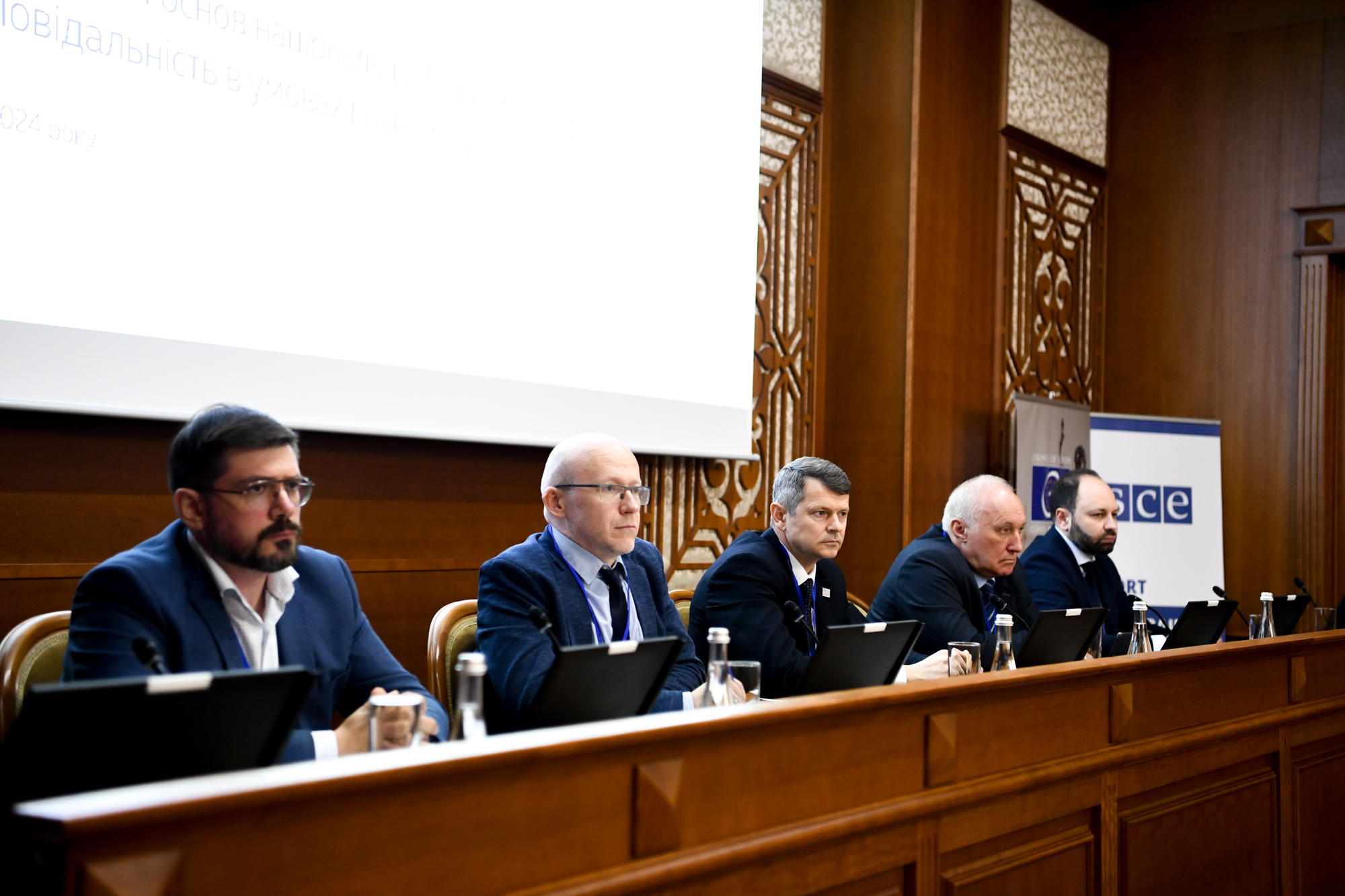
The issue of retroactive effect of the law in time deserves special attention in the context of supplementing the Criminal Code of Ukraine with relevant corpus delicti. Amendments introduced to the Criminal Code of Ukraine have made it possible for the same act to be qualified under several provisions of the Criminal Code. The existing inconsistencies in these legal provisions require both the improvement of national legislation on criminal liability for collaboration and related crimes and the development of case law on these issues.
"Speaking of the criminal procedural feasibility of prosecution, it should be noted that a certain number of criminal proceedings for crimes against the foundations of national security are conducted under the procedure of special pre-trial investigation and trial - in absentia. This raises a number of issues related to the proper notification of participants in criminal proceedings, primarily the suspect, the accused, of the date and time of court hearings, as well as the right of the defence to review criminal proceedings in light of the ECHR practice on the consideration of the relevant category of cases, the use of international legal cooperation," said Oleksandr Marchuk.
The speaker also analysed the problems of proving collaborative crimes.
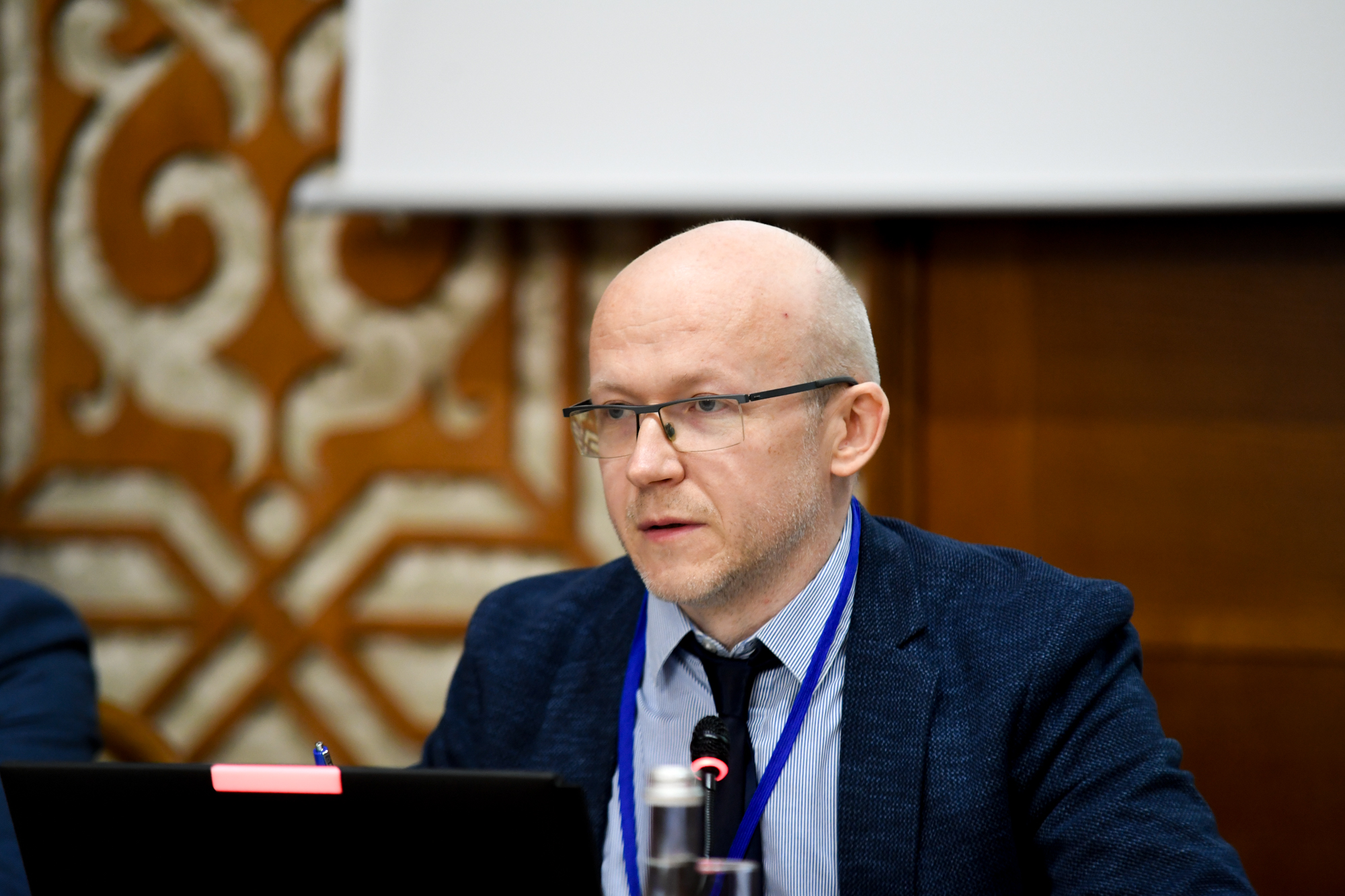
Oleksandr Vodiannikov, Senior Project Associate of the OSCE Support Programme for Ukraine, spoke about the specificities of transitional justice and the jus post bellum dimension in the context of crimes against the foundations of Ukraine's national security. He explained that transitional justice, as a set of mechanisms and processes, is needed in particular to bring perpetrators to justice, ensure access to justice and establish the truth, while jus post bellum regulates the transition from armed conflict to peaceful life.

Viacheslav Navrotskyi, Professor of the Department of Theory of Law and Human Rights at the Ukrainian Catholic University, LL.D., Professor, Corresponding Member of the National Academy of Sciences of Ukraine, spoke about legislative innovations and classical doctrinal provisions on crimes against the foundations of national security of Ukraine. In particular, the speaker emphasised that while amending the Criminal Code of Ukraine, the legislator was ignoring the fact that certain provisions were already contained in the Code. Viacheslav Navrotskyi outlined the issues of interpretation as a way to overcome legislative shortcomings, problematic nuances of supplementing the Criminal Code of Ukraine with an article on collaborative activities, the legal nature of Article 111-1 of the Criminal Code of Ukraine in terms of correlation with other articles of the Code, and analysed the constitutional features of high treason, qualification issues when the commission of one crime or misdemeanour is a way of committing another criminal offence, adjacency/distinction of corpus delicti to deny russian armed aggression, etc.
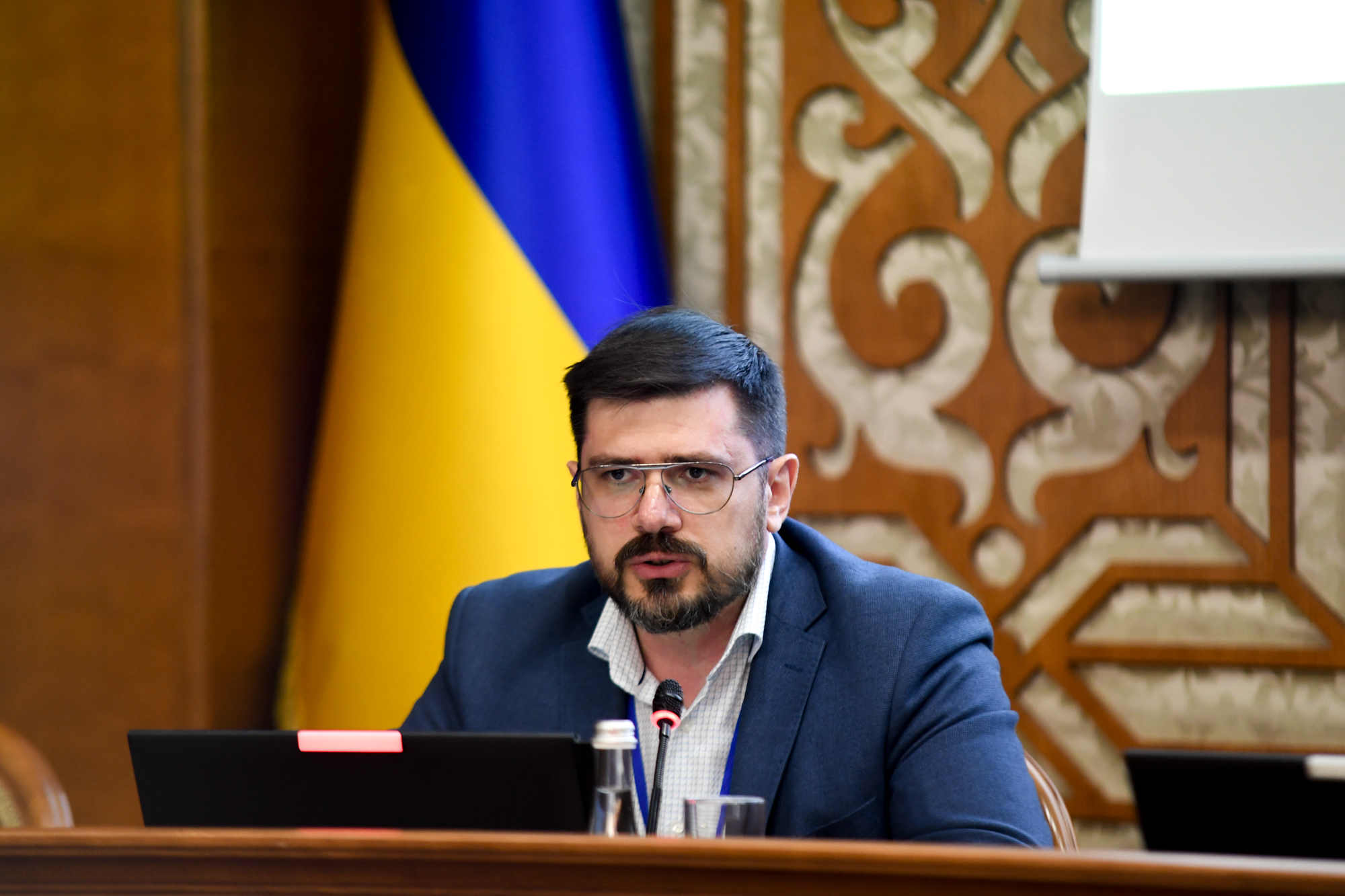
Oleksandr Zhyla, Deputy Head of the Department for the Organization of Procedural Management of Pre-Trial Investigation and Maintenance of Public Prosecution in Criminal Proceedings of the Security Bodies, Department for Supervision of Law Enforcement by the Security Bodies, the Prosecutor General's Office, noted that the circumstances of the occupation should be taken into account when distinguishing between the concepts of "high treason" and "collaboration". He also focused on the relevant provisions of the Criminal Code of Ukraine, which need to be clarified and amended.

The second panel, "Criminal legal qualification of crimes against the foundations of national security", was opened by Nataliia Antoniuk, Vice President of the Criminal Cassation Court of the Supreme Court, who spoke about the problems of qualification of crimes against the foundations of national security of Ukraine and the current case law of the Criminal Cassation Court of the Supreme Court.
According to the speaker, the most controversial issues are:
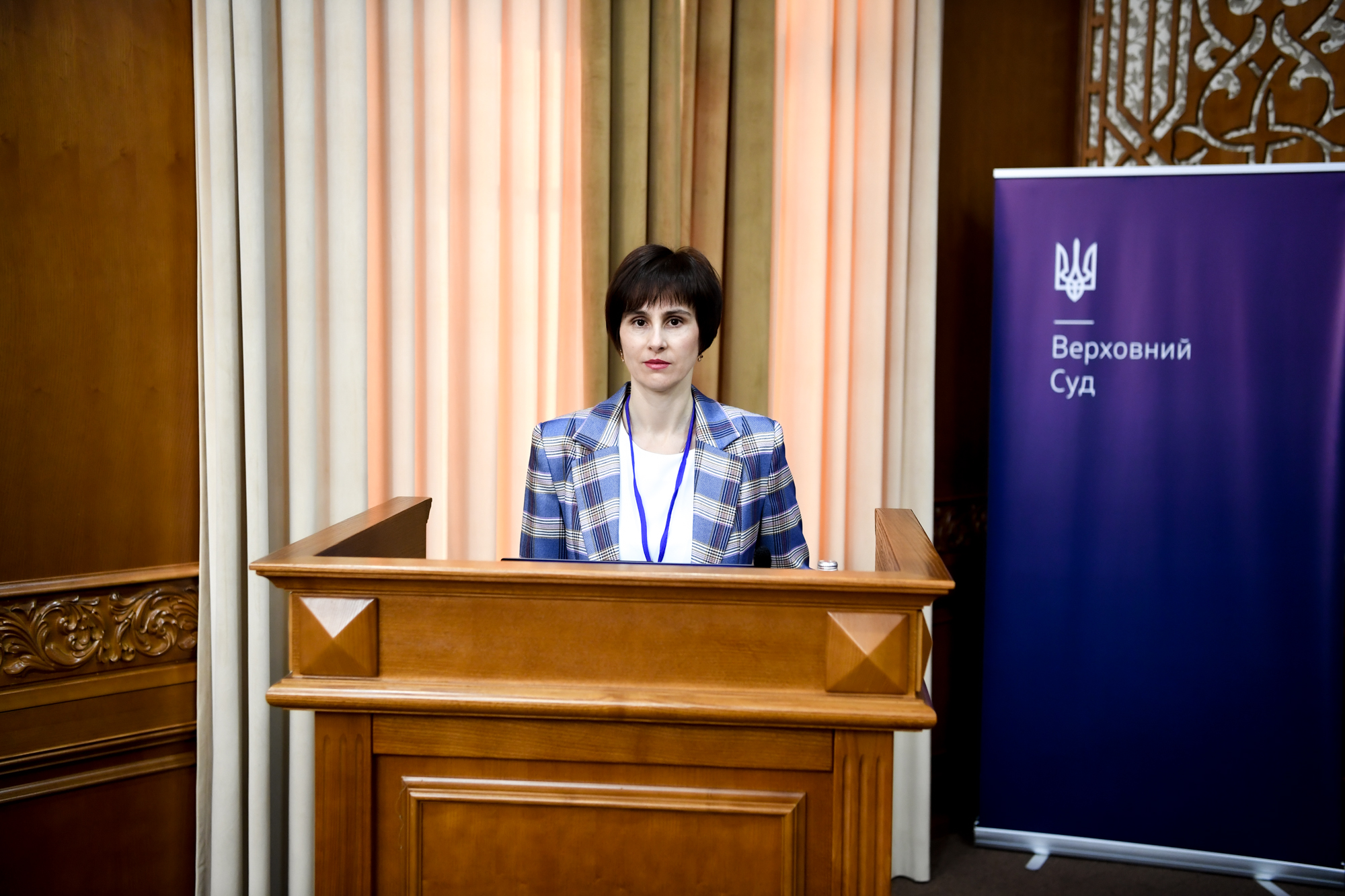
In particular, the following difficulties arise with regard to the distinction between high treason and collaboration. First, both crimes can be committed both on the occupied territory and on the territory controlled by Ukraine. Secondly, the subject of high treason is only a citizen of Ukraine, while the subject of collaboration depends on the form of the act: either a citizen of Ukraine or a general subject. High treason also requires a connection to a foreign element.
Nataliia Antoniuk briefed the audience on some of the proceedings considered by the Criminal Cassation Court of the Supreme Court, as well as the issues that arose during their consideration. In particular, in case No. 161/12980/22 concerning a person who took the position of a prosecutor in the Prosecutor's Office of the Luhansk People's Republic, the Supreme Court noted that the public danger of the criminal offence under part 7 of Article 111-1 of the Criminal Code of Ukraine is that a person (collaborator), through the use of martial law, cooperates with the occupation authorities to the detriment of his or her own state, deliberately helping the aggressor to create a vertical of illegal authorities. In case No. 953/406/23 concerning a person who voluntarily accepted a position as a police officer in a newly created law enforcement body - the "People's Militia" (the position of a driver of a service unit) and performed duties in this position, the question arose whether the person's actions constituted part 7 of Article 111-1 of the Criminal Code of Ukraine (voluntary occupation by a citizen of Ukraine of a position in law enforcement bodies in the occupied territory). The Supreme Court pointed out that the term "law enforcement officer" is not used in the regulatory construction of part 7 of Article 111-1 of the Criminal Code of Ukraine, so the actions of the convict were correctly qualified under part 7 of Article 111-1 of the Criminal Code of Ukraine.

Yurii Ponomarenko, Head of the Department of Criminal Law at the Yaroslav Mudryi National Law University, highlighted the issues related to the qualification of offences under Articles 114-1 and 114-2 of the Criminal Code of Ukraine. As he noted, these articles are the legislator's reflections on the events of the first months of the war in 2014 and 2022, respectively. Now, according to the speaker, these rules need to be changed to reflect current realities and existing jurisprudence.

Oleksandr Zhupina, a representative of the Main Investigation Department of the Security Service of Ukraine, noted that since the beginning of the armed aggression, Ukraine has faced many challenges, especially in the area of criminal law. Investigations into individual cases are now reaching their logical conclusion - final court decisions. In particular, in the criminal proceedings investigated by the security services, the courts handed down seven verdicts sentencing individuals to the maximum penalty of life imprisonment for high treason. More than 400 people were sentenced to prison terms of more than 10 years.
According to him, collaborative activities and aiding and abetting the aggressor state have become one of the negative factors in effectively countering the large-scale invasion. At the same time, the criminalisation of these actions in the first months of the aggression was a correct legal response to the legal gaps in this area.
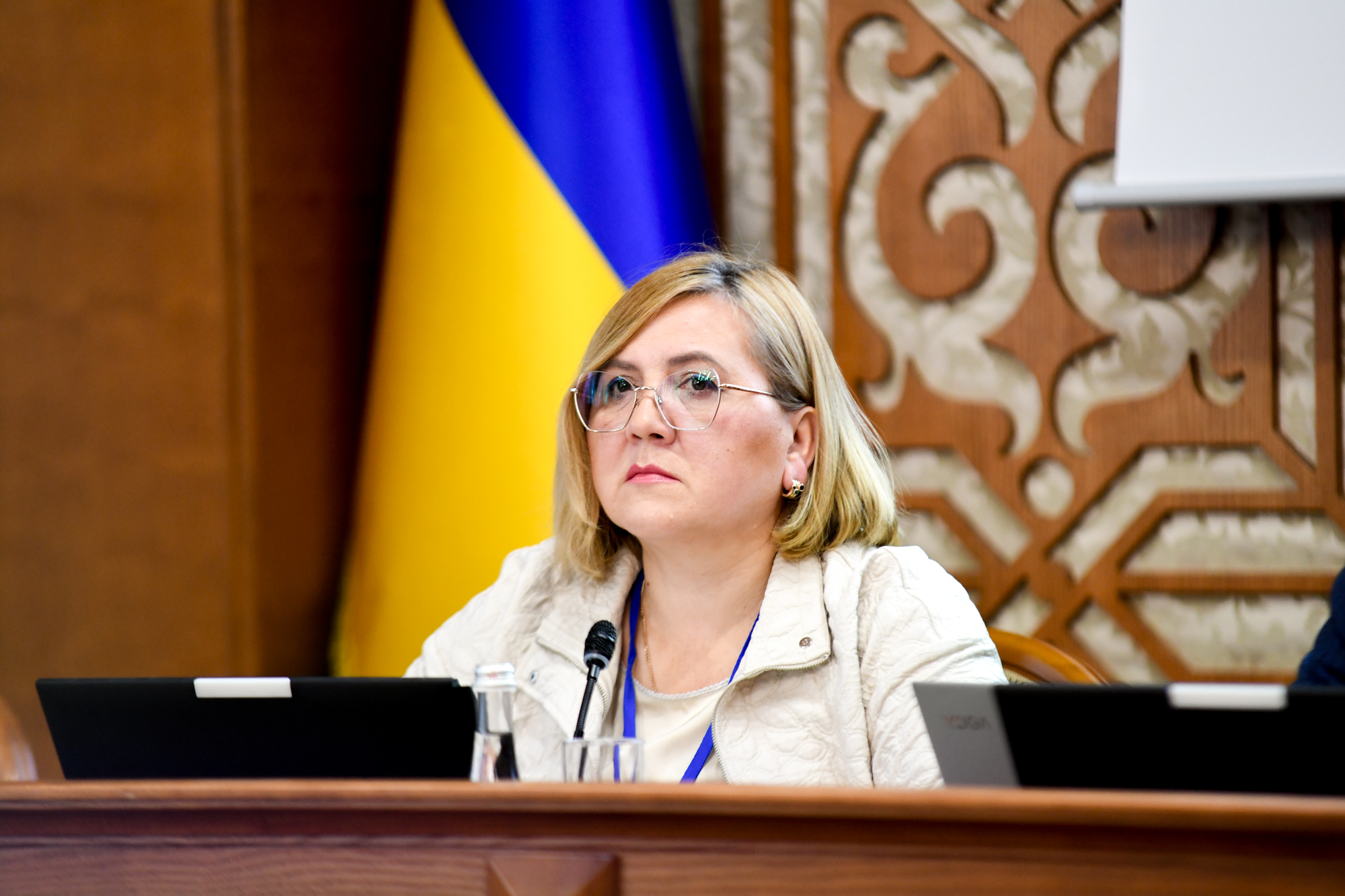
Zoia Zahynei-Zabolotenko, Head of the Department of Criminal Law, Criminology and Judiciary of the Vadym Koretskyi Institute of State and Law of the National Academy of Sciences of Ukraine, drew attention to certain problems of qualification under Articles 111-1 and 111-2 of the Criminal Code of Ukraine. In particular, she focused on the qualification of collaborators' actions under part 7 of Article 111-1 of the Criminal Code of Ukraine regarding the voluntary holding of a position by a citizen of Ukraine in illegal judicial or law enforcement bodies established in the temporarily occupied territory, noting that the affiliation of the relevant body to law enforcement or judicial should be determined in accordance with the legislation of the aggressor country. Among other problematic issues, the speaker highlighted the qualification of educational collaboration and aiding and abetting the aggressor state.

During the third panel, the forum participants discussed the problems of punishability and proof of crimes against the foundations of national security. Aonghus Kelly, Head of the Division for Procedural Management in War Crimes Cases (EUAM), spoke about the open source intelligence (OSINT) tool in the investigation of international crimes. The speaker highlighted three aspects of this issue: national procedures for OSINT; international procedures for OSINT; the usefulness and importance of the OSINT tool, which cannot and should not replace witness testimony; and standard procedures for gathering evidence. The expert also stressed the importance of ensuring that the use of OSINT complies with Ukrainian legislation.
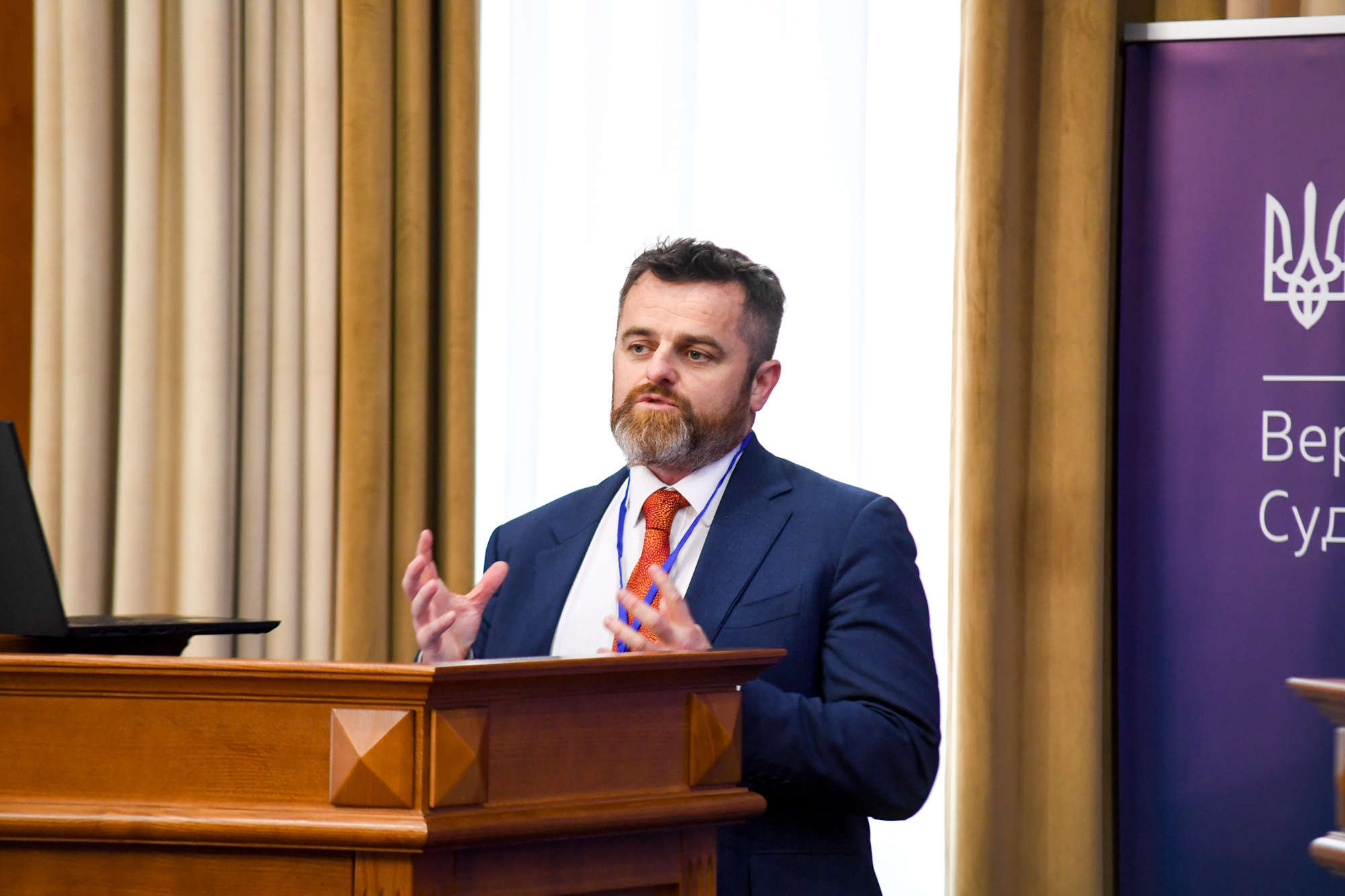
Michal Vyvoda, Senior OSINT Adviser (EUAM), focused on the history and technical aspects of the use of OSINT, particularly in criminal investigations. He noted that information gathered from open sources is an important part of the evidence process that can help prove a crime, but it should not be proof in itself. Among the current challenges in the use of OSINT, the speaker also highlighted the need to improve mechanisms for the exchange of evidence between states, including through the training of judges.
The international expert of the Council of Europe, barrister Jeremy McBride, highlighted the standards of the Convention for the Protection of Human Rights and Fundamental Freedoms relating to the investigation and trial of criminal proceedings for crimes against the fundamentals of national security. The speaker noted that the most pressing issue for discussion was the prohibition of retroactive criminal liability in Article 7 of the Convention.
The expert also warned of situations in which Article 3 on the prohibition of torture may be violated during trials, and outlined the issues of proportionality of punishment for these crimes, respect for the right to a fair trial and the specificities of trials in absentia.
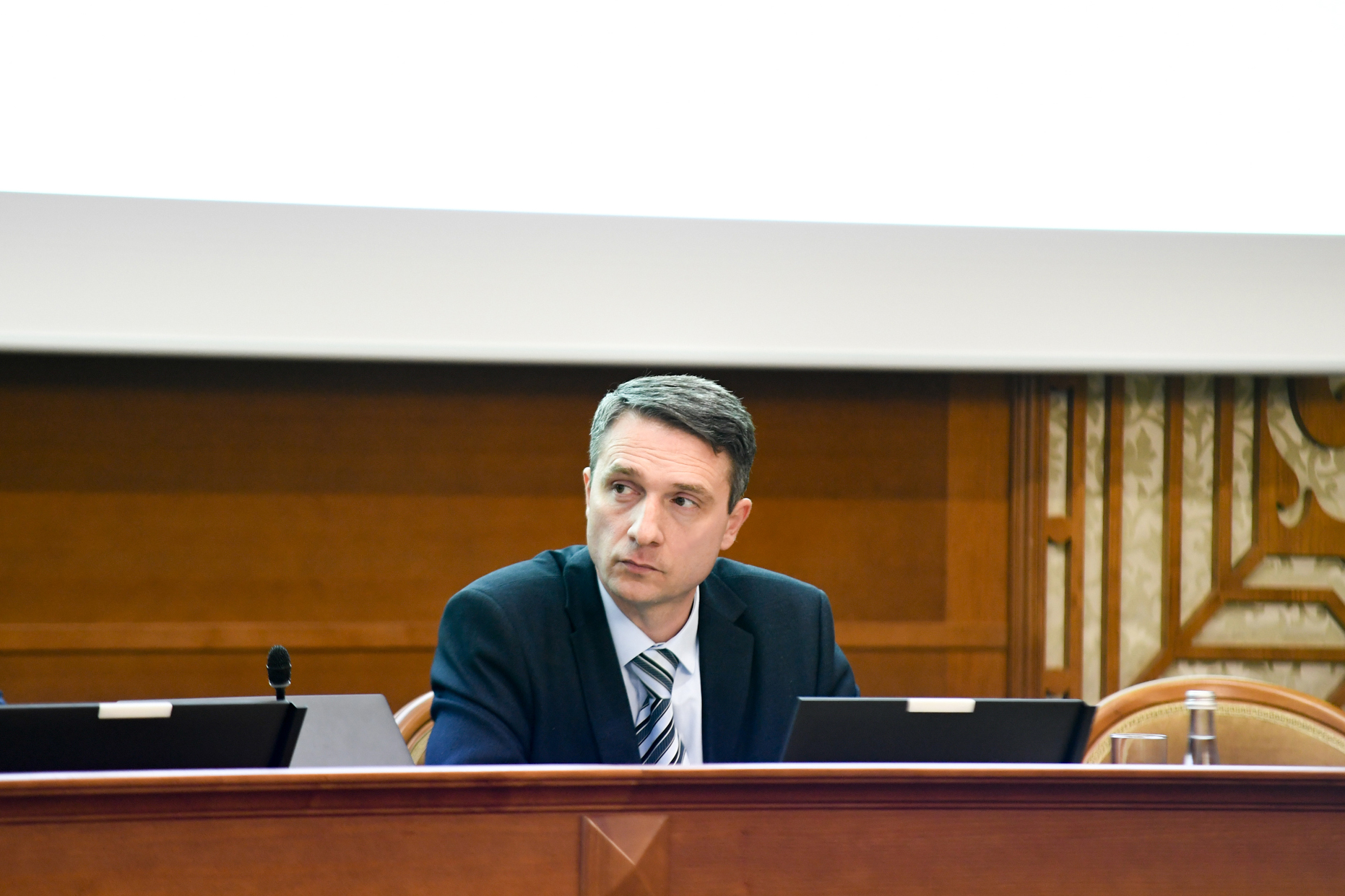
Ihor Ivanenko, Supreme Court Judge of the Criminal Cassation Court, spoke about the trends in court practice and the difficulties that the Ukrainian judiciary is working to resolve in relation to criminal offences under Chapter I of the Special Part of the Criminal Code of Ukraine. The judge concluded that the courts were aware of their responsibility and the importance of taking into account the principle of proportionality, given the need to apply sufficiently severe penalties in the relevant category of cases. In addition, according to Ihor Ivanenko, it is advisable to provide for alternative punishments for some sanctions, especially for basic ones.

The First Deputy Head of the Main Investigation Department of the National Police of Ukraine, Serhii Panteleiev, noted that in the context of Russia's full-scale invasion of Ukraine, the NPU was tasked not only with ensuring public order and security, preserving people's lives and health, and evacuating them, but also with responding to crimes related to the armed conflict and war crimes. Their high-quality recording, documentation and investigation, as well as the identification and prosecution of those involved in their commission, are also important. As of today, investigators of the National Police of Ukraine have registered 117,000 criminal proceedings over crimes directly related to the armed conflict. These include not only violations of the laws and customs of war, which, of course, are the most numerous - 102,000. The range of crimes in this category includes crimes against the foundations of national security, terrorist acts and the participation of Ukrainian citizens in illegal armed groups of the so-called Luhansk and Donetsk People's Republics quasi-entities. It is clear that virtually all of the above-mentioned corpus delicti fall under the jurisdiction of the investigators of the Security Service of Ukraine, so the NPU considers it appropriate to regulate the issue of alternative jurisdiction over crimes against the foundations of national security at the legislative level by introducing appropriate amendments to Article 216 of the Criminal Procedural Code of Ukraine, which will provide for a provision allowing investigators of the law enforcement body that discovered and registered the crime to investigate these crimes.
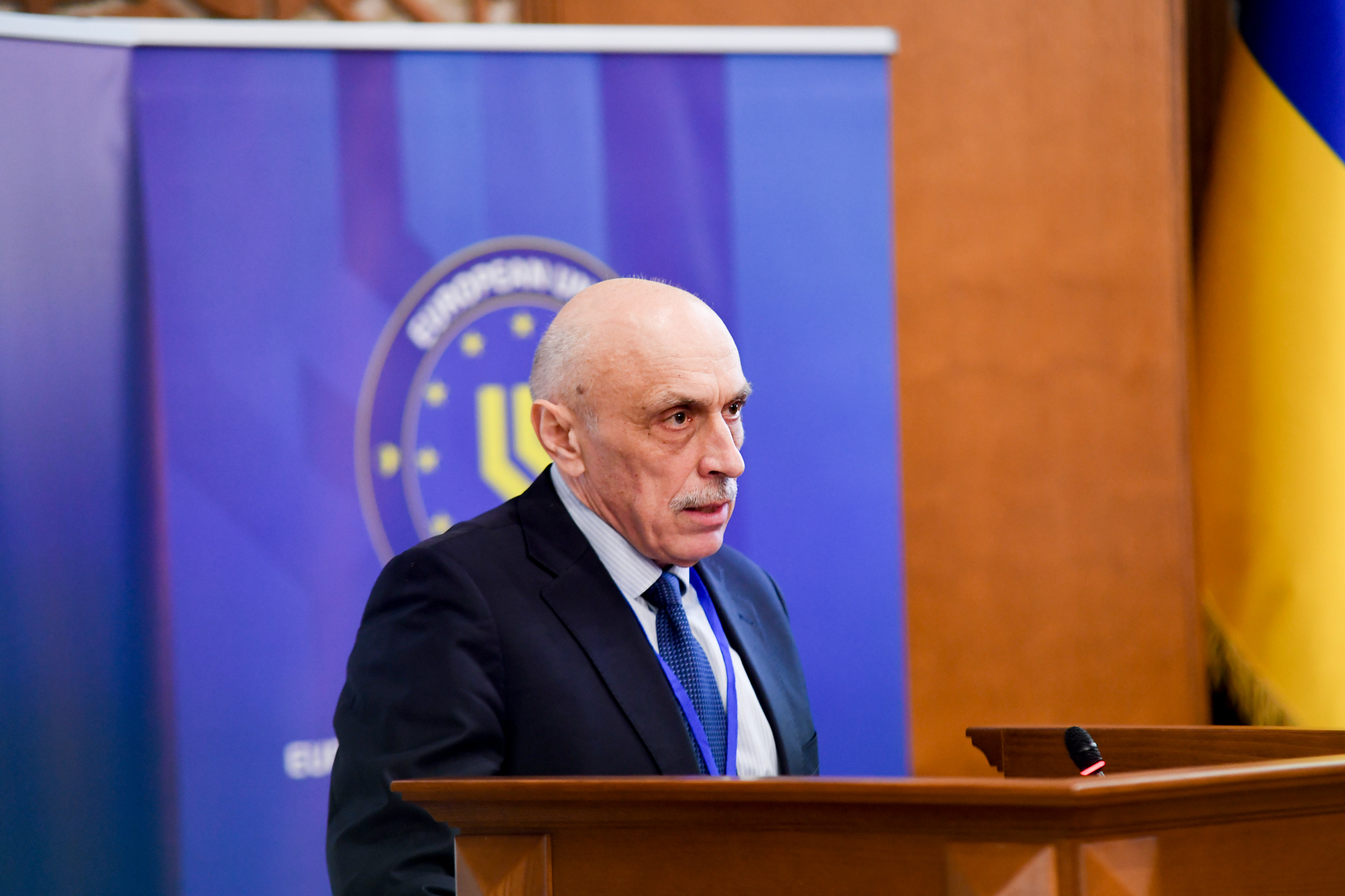
According to Oleksandr Pavlichenko, Executive Director of the Ukrainian Helsinki Human Rights Union, the application of Articles 111-1 and 436-2 of the Criminal Code of Ukraine poses certain problems in practice. Among these, he highlighted the issue of the correct qualification and definition of the terms used in these provisions, which is important for compliance with the principle of legal certainty. With regard to the in absentia procedure, the speaker said that in his view, persons convicted under this procedure should be given the opportunity to have their case reviewed.
.jpg)
The event was organised by the Supreme Court in cooperation with the OSCE Support Programme for Ukraine and the Council of Europe.
